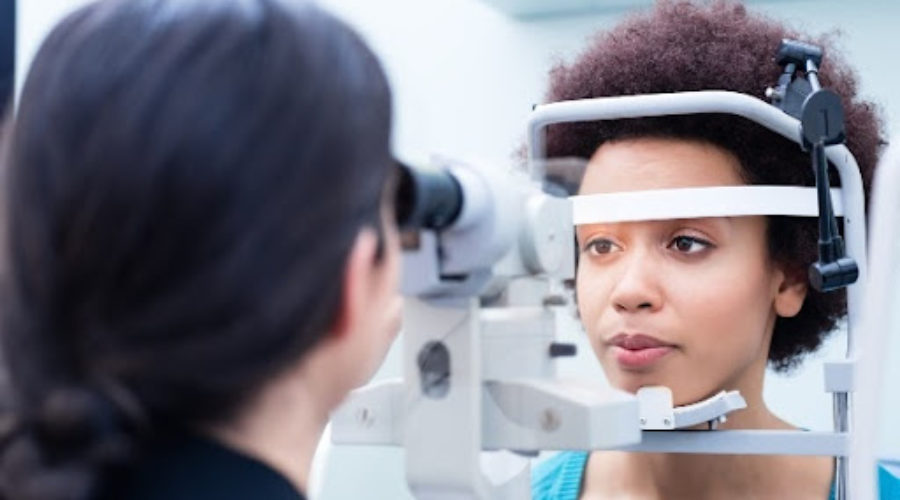
A routine eye exam is a foundation for maintaining healthy vision throughout your life. These appointments are easy and painless, giving the eye doctor a peek into your eyes to identify any potential signs of vision loss or disease.
Most people visit the eye doctor for an exam because they need vision correction lenses due to nearsightedness or farsightedness. But there is much more to these vision tests to determine your risk for common eye diseases.
In addition to ensuring that your prescription is up to date, your eye doctor will check for signs of potential issues. Regular eye appointments are your first line of defense to protect against problems such as glaucoma, chronic dry eye, inflammation, cataracts, and other age-related issues.
During the examination, your eye doctor will use different types of tests to measure your vision and potential risk of eye diseases.
You’ll see various instruments, lights, and tools. For example, the doctor will ask you to read letters on the wall while looking through different lenses.
Each eye test serves a purpose for evaluating different parts of your eye health. The goal is to identify eye conditions in the earliest stages, which optimizes the overall outcome. Most conditions are most treatable when identified in the beginning stages.
A thorough eye exam usually includes these steps to monitor your eye health:
Other types of eye tests can be done, such as muscle testing to evaluate eye movement, peripheral testing to determine your range of vision, color testing, slit-lamp testing, glaucoma screening, and more.
When these tests are finished, your eye doctor will discuss specific issues relating to your eyesight and whether you need to wear corrective lenses. The next step is to choose frames and/or contact lenses, and our team offers full-service solutions to help with your vision correction needs.
Additionally, a treatment plan can be identified if you have a diagnosis of eye disease. It’s essential to follow the eye doctor’s recommendations to protect your vision and slow the progress of the disease.
Keep in mind that certain eye conditions require services from an eye specialist. For example, an optometrist provides general eye care but will likely refer you to an ophthalmologist if you need medical treatment.
Some eye conditions are treatable with medications or corrective lenses, but others require more in-depth treatments – such as surgery. Your eye doctor will provide a referral to another specialist if these services are necessary to protect or restore your vision.
Keep in mind that simple vision screening at school isn’t a replacement for a comprehensive exam with an eye doctor. Even if your child passed the school screening, it’s still recommended to maintain a consistent schedule at a nearby optometry office.
Additionally, many online vision tests claim to eliminate your need to visit an eye doctor. These digital tests offer at-home solutions for checking visual acuity, light sensitivity, and color-blindness.
But they aren’t a replacement for an in-office visit with an experienced eye doctor. For example, an online vision test can’t give you information about serious eye diseases, such as macular degeneration, glaucoma, or cataracts.
The recommendations vary depending on your age, health condition, and previous diagnosis. These are the general recommendations for eye exam frequency:
Certain risk factors increase the need to see an eye doctor more frequently. For example, suppose you have a family history of eye disease, or you’ve been diagnosed with diabetes, heart disease, or an eye disease. In that case, it’s a good idea to visit the eye doctor more frequently to monitor your vision loss progression closely.
Visiting an eye doctor is an important step to preserve your vision now and in the future. You depend on your eyesight for everyday tasks and responsibilities, which is why it’s essential that you are proactive about regular eye checkups.
When was the last time you visited an optometrist for an eye exam? If it’s time to get a checkup, then our team is here to help.
We provide personalized support and full-service solutions for people of all ages, giving you a one-stop location for the whole family.
For more information about scheduling an eye exam, contact us at EyesNY. We offer multiple locations for your convenience.
Malta
658 Malta Ave., Ste 101
Malta, NY 12020
Phone: (518) 580-0553
Saratoga Springs
414 Maple Ave Ste 200
Saratoga Springs, NY 12866
Phone: (518) 580-0553
Clifton Park
1712 U.S. 9
Clifton Park, NY 12065
Phone: (518) 580-0553
Queensbury
535 Bay Road
Queensbury, NY 12804
Phone: (518) 580-0553
Troy
2200 Burdett Street Ste 206
Troy, NY 12180
Phone: (518) 580-0553
